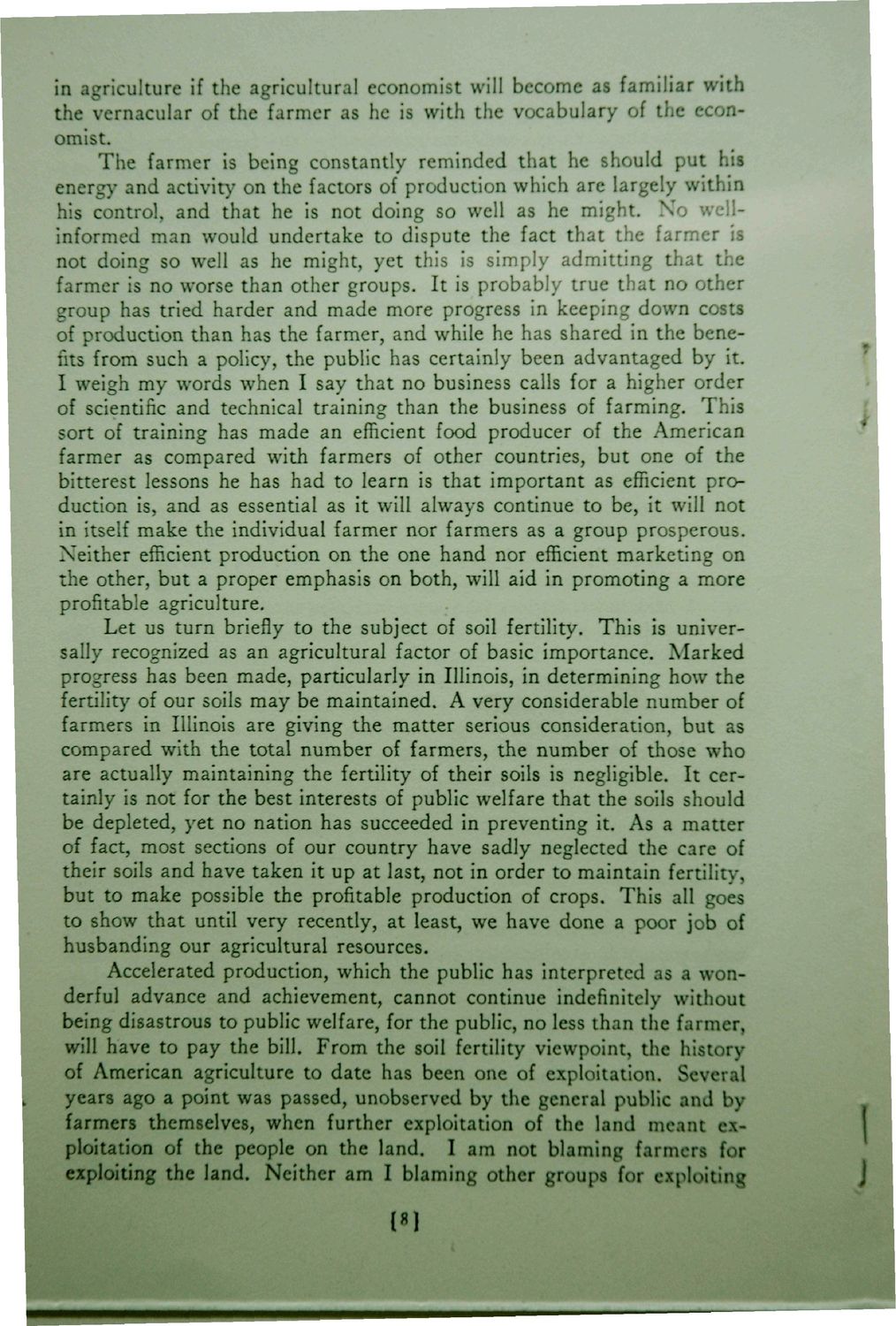| |
| |
Caption: Dedication - New Ag Building Speech
This is a reduced-resolution page image for fast online browsing.

EXTRACTED TEXT FROM PAGE:
in agriculture if the agricultural economist will become as familiar with the vernacular of the farmer as he is with the vocabulary of the economist. The farmer is being constantly reminded that he should put his energy and activity on the factors of production which are largely within his control, and that he is not doing so well as he might. No wellinformed man would undertake to dispute the fact that the farmer is not doing so well as he might, yet this is simply admitting that the farmer is no worse than other groups. It is probably true that no other group has tried harder and made more progress in keeping down costs of production than has the farmer, and while he has shared in the benefits from such a policy, the public has certainly been advantaged by it. I weigh my words when I say that no business calls for a higher order of scientific and technical training than the business of farming. This sort of training has made an efficient food producer of the American farmer as compared with farmers of other countries, but one of the bitterest lessons he has had to learn is that important as efficient production is, and as essential as it will always continue to be, it will not in itself make the individual farmer nor farmers as a group prosperous. Neither efficient production on the one hand nor efficient marketing on the other, but a proper emphasis on both, will aid in promoting a more profitable agriculture. Let us turn briefly to the subject of soil fertility. This is universally recognized as an agricultural factor of basic importance. Marked progress has been made, particularly in Illinois, in determining how the fertility of our soils may be maintained. A very considerable number of farmers in Illinois are giving the matter serious consideration, but as compared with the total number of farmers, the number of those who are actually maintaining the fertility of their soils is negligible. It certainly is not for the best interests of public welfare that the soils should be depleted, yet no nation has succeeded in preventing it. As a matter of fact, most sections of our country have sadly neglected the care of their soils and have taken it up at last, not in order to maintain fertility, but to make possible the profitable production of crops. This all goes to show that until very recently, at least, we have done a poor job of husbanding our agricultural resources. Accelerated production, which the public has interpreted as a wonderful advance and achievement, cannot continue indefinitely without being disastrous to public welfare, for the public, no less than the farmer, will have to pay the bill. From the soil fertility viewpoint, the history of American agriculture to date has been one of exploitation. Several years ago a point was passed, unobserved by the general public and by farmers themselves, when further exploitation of the land meant exploitation of the people on the land. I am not blaming farmers for exploiting the land. Neither am I blaming other groups for exploiting m
| |